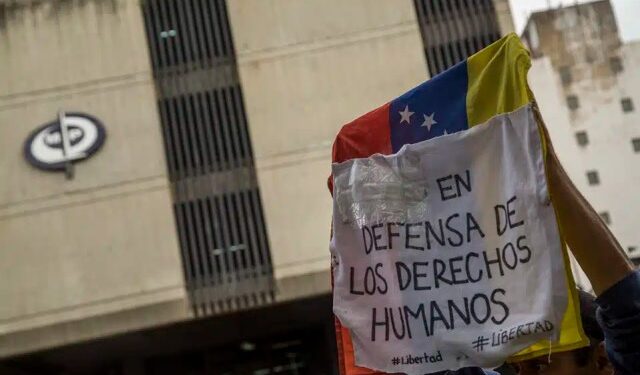Bill on the regulation of NGOs in Venezuela violates human rights and worsens the Complex Humanitarian Emergency
During the ordinary session of Venezuela’s National Assembly on January 9th, 2024, the President of the Assembly, Jorge Rodríguez, announced that on January 12th, there would be a public consultation on the draft Law on the “Inspection, Regularization, Performance and Financing of Non-Governmental and Related Organizations,” which was approved in its first discussion on January 23rd, 2023.
lapatilla.com
Representatives of non-governmental organizations, associations and foundations have all stated their concern because they assure that, if this bill is approved, human rights established in the Constitution, other national laws and international treaties would be violated.
Adelba Taffin, a member of the NGO ‘Padres Organizados’ (Organized Parents), considers that this project has the purpose of outlawing organizations, because it forces them to seek approval from the Government in order to be able to operate.
“This law provides for the dissolution of organizations by administrative ruling without an appeal to the justice system. This is absolutely illegal because organizations, such as civil associations, foundations, which are non-profit civil society organizations, were able to operate by simply registering in the civil registry and that was enough for them to function normally, as is established in the Civil Code. But now they must register not only in the civil registry, but in other administrative entities of the Government so that they can be considered legitimate to operate,” said Taffin.
She highlighted that if organizations fail to comply with all the requirements set forth in the regulatory text, they are subject to strong sanctions and confiscatory fines ranging between $3,000 and $12,000.
According to article 15 of the bill, NGOs will be prohibited from “receiving contributions intended for organizations with political purposes, carrying out political activities, promoting or allowing actions that threaten national stability and the institutions of the Republic.”
The spokesperson explained that this severely limits the possibility of defending human and citizen rights, as well as demanding that the State comply with its obligations.
“This clearly shows that the political inspiration of this law is part of patterns of systematic criminalization against civil society organizations. This results in the closure of civic space through a fence of very serious restrictions on civil society to continue defending its rights and providing due assistance and protection to the Venezuelan population,” considered the spokesperson for the NGO ‘Padres Organizados’.
According to article 13 of the regulations, the National Executive will have powers of “supervision, inspection, control and sanction by the State over NGOs.” The document highlights that one of the powers is to “implement control mechanisms that allow monitoring and sanctioning deviations by the subjects of this law that compromise national sovereignty or the normal development of the civil association.”
Vulnerable sectors are the most affected
Taffin pointed out that the approval of this law will have negative consequences for the most vulnerable sectors. She pointed out that the text contemplates restrictions on access to international support that organizations dedicated to humanitarian work may receive.
Numeral 5 of article 12 refers to the sources of financing and establishes that non-governmental organizations will have the obligation to declare, for registration purposes, the list of donations received with full identification of the donors, indicating whether they are national or foreign, accidental or permanent.
“All those people who have been affected by the Complex Humanitarian Emergency situation that this country has been going through for more than seven years and whose needs are met by this type of organizations, healthcare needs, food, that are not met by the Government. Now they (vulnerable sectors) will not be able to receive aid or support by these organizations that have dedicated themselves over the years to somewhat alleviate the serious situation,” commented the member of the NGO ‘Padres Organizados’.
She warned that this could deepen the vulnerability of this sectors of the Venezuelan population.
Thus, Taffin called on the National Assembly, with a pro-government majority, not to insist on the advancement and discussion of the draft Law on Supervision, Regularization, Performance and Financing of Non-Governmental and Related Organizations.
“This text clearly violates multiple human rights that are established in the Constitution, international treaties, and does not improve the country’s environment in this context of the Complex Humanitarian Emergency that it is still going through. We also ask the international community to reject this law and any other regulatory text that may limit the exercise of citizen rights,” Taffin highlighted.
On January 30th, 2023, the independent international fact-finding mission on the Bolivarian Republic of Venezuela expressed concern about the potential implications of this bill.
“If sanctioned, the law on NGOs could represent a point of no return in the closure of civic and democratic space in Venezuela,” warned Marta Valiñas, president of the UN Fact-Finding Mission.








